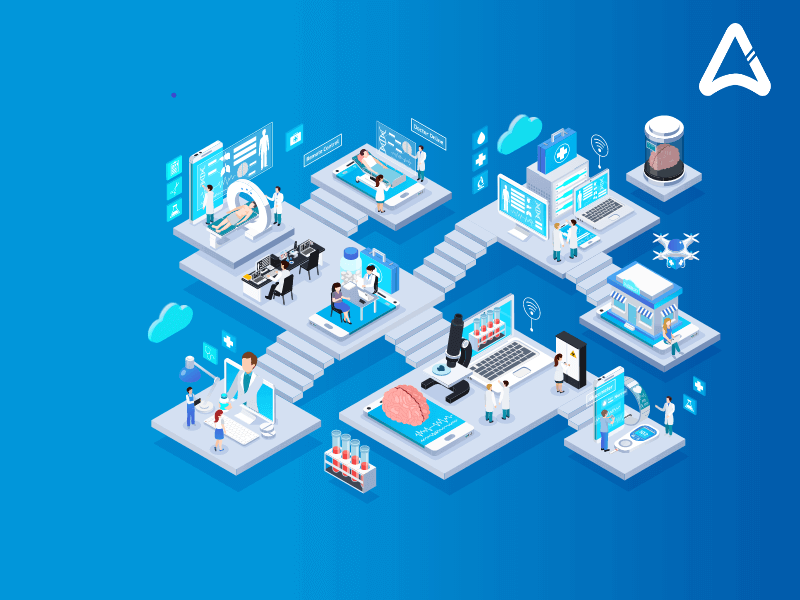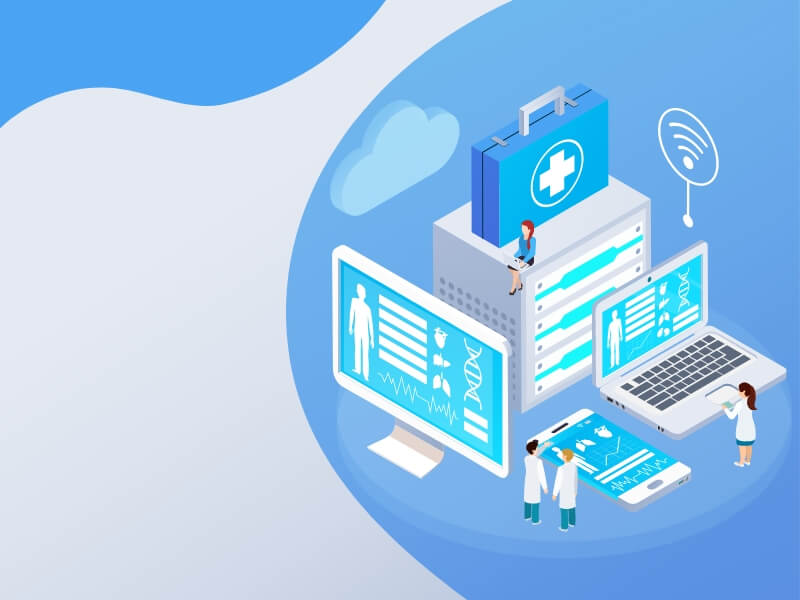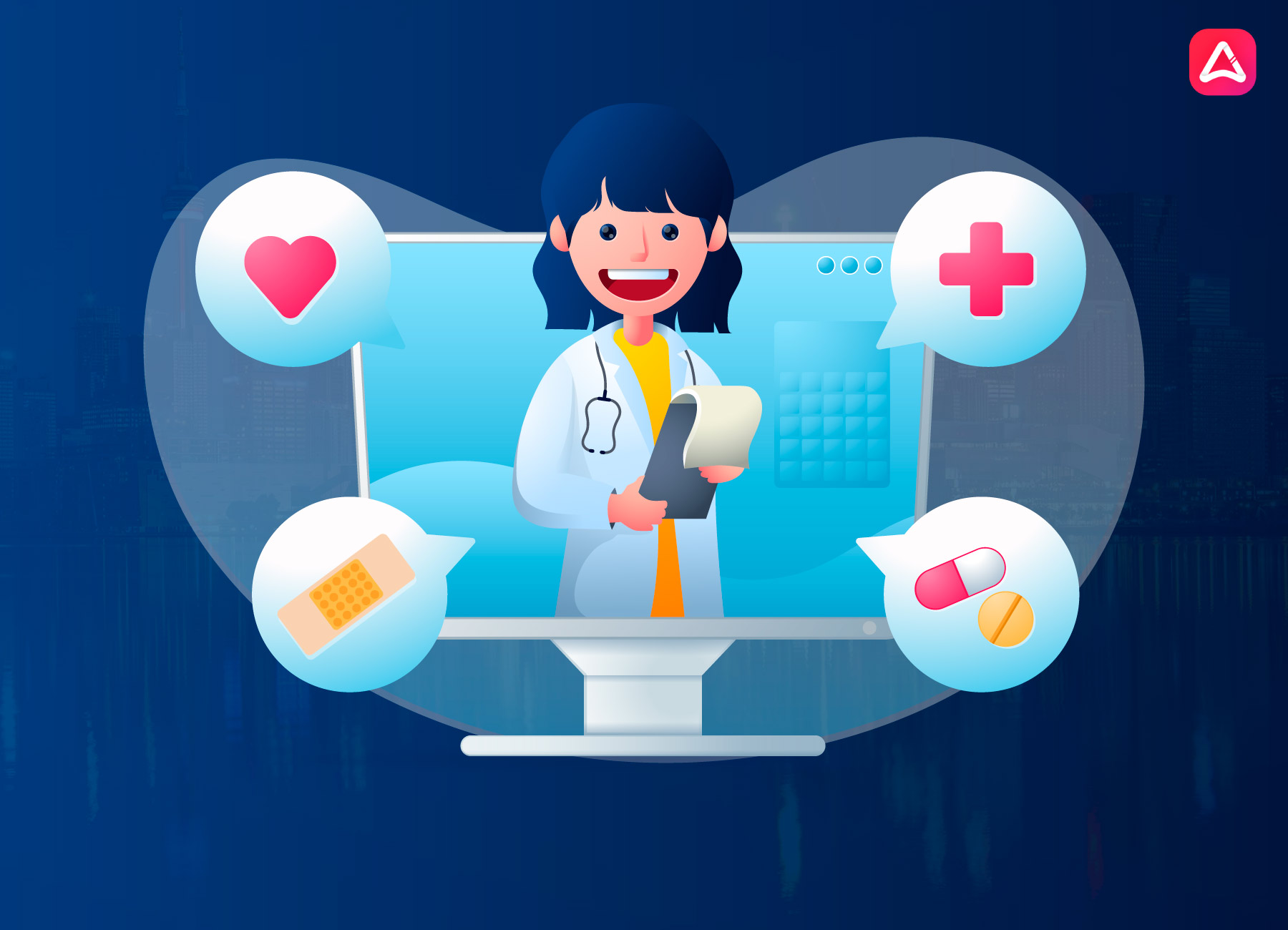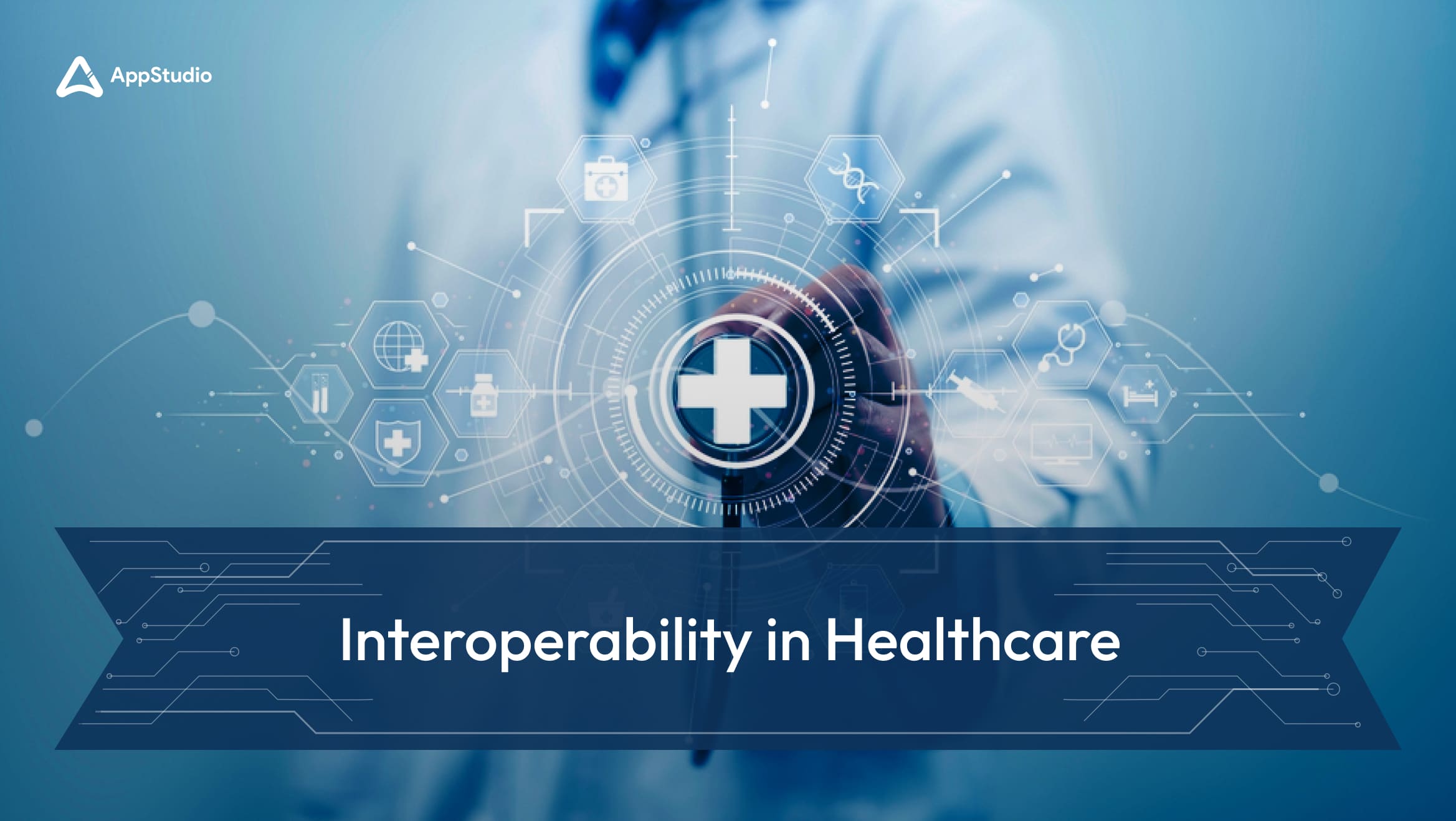Medicine currently faces complex challenges, such as increasing life expectancy or population growth, which means that there are a large number of patients with chronic diseases that require continuous care. Through Artificial Intelligence applied to healthcare, we can change from traditional treatments, with a reactive approach, to a proactive health system, based on prevention, well-being, faster diagnoses and precision medicine.
Data helps Improve Patient Care
The healthcare industry generates, stores, and interprets a large amount of data that can help make faster decisions and provide better patient care. As app developers we know that Data is a fundamental part of the digital transformation that is being implanted in the hospital industry, so it is necessary to have tools that help take advantage of it and interpret it in the best possible way. According to Medical Market Research, by the end of 2020, hospitals are expected to spend $ 18.7 billion to support the development of new treatment methods and medications through AI in healthcare.
An example of this expense is the one made by the Henry Mayo Newhall Hospital (Valencia, California), which has managed to implement a unique registration system for doctors. It is based on Microsoft technology, which allows access to patient information, such as their medical history, and creates prescriptions through any mobile device and from anywhere in the hospital.
Besides, thanks to the VitalHub Chart, a native application in Windows 8.1, an infinite number of electronic medical records with relevant patient information can be accessed through organized data in a friendly interface.
The use of AI in healthcare serves to offer a better service to patients, provide better tools for medical personnel to do their work better and faster, and allow them to diagnose and treat diseases more efficiently.
Check Also – The Future of Artificial Intelligence & Machine Learning in Healthcare
Benefits of AI in Healthcare amid Covid-19 Pandemic
When the world was ignorant about the spread of Coronavirus, it was a Canadian company that predicted the chances of the pandemic. Unfortunately, that prediction was accurate, however, it provided us with the fact that AI can be beneficial in predicting pandemics and epidemics.
We know that AI in healthcare and AI in medicine can be beneficial for doctors and healthcare professionals in issuing warnings and treating diseases. Governments can also use AI to counter the spread of disease, effectively manage the treatments on a larger scale.
Prevention and Early Detection of Diseases are Key
According to the World Health Organization (WHO), between thirty and fifty percent of cancer deaths could have been prevented thanks to prevention, early detection and the start of treatment by AI in medicine. In this sense, AI can revolutionize health care, considering that cancer represents around $ 1.16 trillion a year for the global economy.
Working with Microsoft Research’s Genomics group, biologists from St. Jude Children’s Research’s Hospital have created an online platform capable of treating large amounts of data, of identifying the variants responsible for each cancer and advance towards the search of a cure.
AI in Medicine Helps Reduce the Costs
Another objective of AI is to reduce unnecessary and expensive hospital admissions. Through the creation of online centers, the use of medications can be monitored, including virtual consultations with specialists. As an AI developer, we know that this technology is here to help not to create chaos. More and more medical institutions, through the application of AI, aim to offer a better service to their patients in less time, more efficiently, from anywhere and at any time. All through a reliable, safe and innovative technology.
The Use of AI in Healthcare is Making Smart-Health Possible
Here are some solutions, projects, and accelerators for Artificial Intelligence applied to healthcare:
- Microsoft Genomics – Offers general availability over Microsoft Azure, which provides researchers and clinicians with cloud-powered analytics and upgraded AI in medicine.
- Microsoft Azure Security and Compliance Blueprint: HIPPA / HITRUST – Health Data & AI – A comprehensive application development foundation that helps healthcare organizations move to the cloud with greater simplicity, compliance, security and compliance with standards in the industry.
- AI Network for Healthcare – is an expansion of the Microsoft Intelligent Network for Eyecare to create an AI-focused cardiology network.
- Microsoft 365 Huddle Solution Templates: are new templates for developers that extend Microsoft teams. In this way, healthcare teams can take advantage of the most advanced collaboration tools to drive quality and care results with Microsoft 365.
- Empower MD Project: This is a research collaboration with UPMC (University of Pittsburgh Medical Center) that will create a system of listening and learning from what doctors do and say, to reduce the need for them to take notes.
- InnerEye Project: New integrations with TeraRecon and Intuitive Surgical have been announced. It is included in the multitude of benefits of AI in healthcare.
Ensuring the Responsible Use of Artificial Intelligence
It is clear that the potential of Artificial Intelligence applied to health care is enormous because of the benefits of AI in healthcare; even so, there are essential considerations that must be taken into account. Medical professionals, regulators, and policymakers should exercise caution with “secondary” uses of health data as one of the use of AI in healthcare, that is, use not related to direct patient care. Ensuring the protection of data and the privacy of patients will be essential for proper healthcare.
In this regard, Microsoft has been the first primary cloud service provider to incorporate an international code of practice for privacy, ISO / IEC 27018, and further supports these protections with firm contractual commitments.
Artificial Intelligence is not a technology that is going to end the human factor in treatment and diagnosis. It, in fact, is a technique that will help humans to effectively and scientifically manage the hospitals and patient care. At AppStudio, we are aware that efficiency, productivity, mobility, growth and adaptation to the environment are increasingly important concepts to survive in a market where the commitment to technology will mark the future of each company.
If you want to know more about ERP Software for hospital management and AI mobile apps for healthcare, do not hesitate to contact us.





